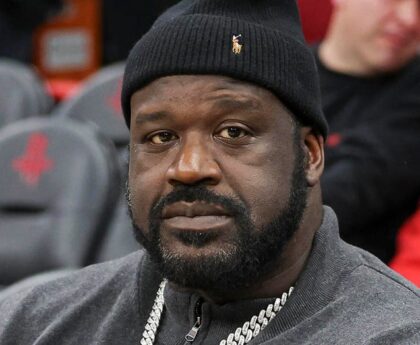A federal judge in West Virginia has upheld a state law that prohibits biological male student athletes who identify and present themselves as female from playing on girl’s school sports teams.
Judge Joseph R. Goodwin of the Southern District of West Virginia ruled on Thursday that H.B. 3293, the “Save Women’s Sports Bill,” which defines “girl” and “woman” as biologically female for the purpose of secondary school sports, is “constitutionally permissible.” The court found that West Virginia’s definition of “biological sex” for school sports is “substantially related to its important interest in providing equal athletic opportunities for females.”
“I have no doubt that H.B. 3293 aimed to politicize participation in school athletics for transgender students,” Goodwin wrote. “Nevertheless, there is not a sufficient record of legislative animus. Considering the law under the intermediate scrutiny standard, I find that it is substantially related to an important government interest.”
The law, introduced in March 2021, is one of several recent attempts by Republican-controlled state legislatures to bar transgender student athletes from competing against members of the opposite sex. Critics say such efforts are hateful, discriminatory and even harmful towards transgender youth. Supporters counter that male and female biological differences make physical competition between transgender athletes and girls unfair and can deny women opportunities.
ARIZONA GOV. DUCEY SIGNS LEGISLATION BARRING TRANSGENDER FEMALES FROM PLAYING GIRLS SPORTS
The “Save Women’s Sports Bill” was challenged by the American Civil Liberties Union, representing Becky Pepper-Jackson, a transgender middle school student who was barred from joining the girl’s cross-country team. The ACLU argued the law violated Pepper Jackson’s rights under the 14th Amendment’s Equal Protection Clause and Title IX, a federal statute that prohibits sex-based discrimination.
Goodwin agreed that the law was designed to “prevent transgender girls from playing on girl’s sports teams,” but said this was legally permissible if there was a substantial government interest in doing so.
He declined to define the terms “girl” or “women,” writing, “the courts have no business creating such definitions, and I would be hardpressed to find many other contexts where one’s sex and gender are relevant legislative considerations.” However, he pointed to biological differences between men and women that are relevant in athletic competition.
“While some females may be able to outperform some males, it is generally accepted that, on average, males outperform females athletically because of inherent physical differences between the sexes. This is not an overbroad generalization, but rather a general principle that realistically reflects the average physical differences between the sexes,” Goodwin wrote.
Though Pepper-Jackson has taken puberty blockers, Goodwin observed, “there is much debate over whether and to what extent hormone therapies after puberty can reduce a transgender girl’s athletic advantage over cisgender girls.” He also pointed out that some transgender people may only transition socially, not medically and physically.
“The fact is, however, that a transgender girl is biologically male and, barring medical intervention, would undergo male puberty like other biological males. And biological males generally outperform females athletically. The state is permitted to legislate sports rules on this basis because sex, and the physical characteristics that flow from it, are substantially related to athletic performance and fairness in sports,” he ruled.
The ACLU of West Virginia said it was reviewing the decision with co-counsel to determine the next steps. The ban applies to middle and high schools, as well as colleges.
The decision was welcomed by West Virginia Attorney General Patrick Morrisey, who defended the law in court.
“This is not only about simple biology, but fairness for women’s sports, plain and simple,” Morrisey said in a statement. “Opportunities for girls and women on the field are precious and we must safeguard that future. Protecting these opportunities is important, because when biological males compete in a women’s event women and girls lose their opportunity to shine.”
The West Virginia Secondary School Activities Commission, which oversees scholastic sports, said in 2021, when the suit was filed, that it had not received any complaints about transgender athletes on girls’ teams.
A 2017 study by the Williams Institute at the UCLA School of Law used state-level, population-based surveys to estimate that West Virginia had the highest percentage (1.04%) of residents ages 13 to 17 among all states who identified as transgender. That equated to about 1,150 teenagers.
The Associated Press contributed to this report.
Article Source: Sports From Fox News Read More




